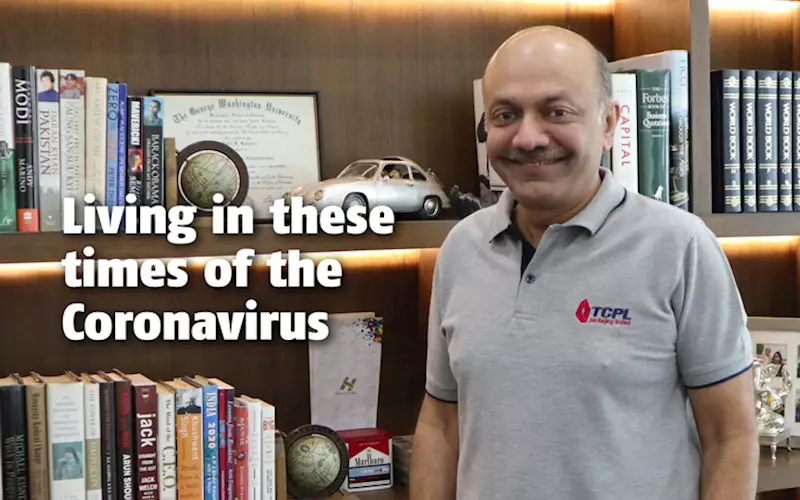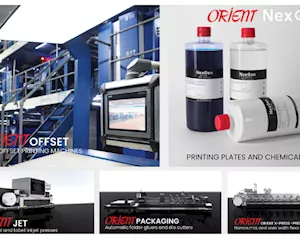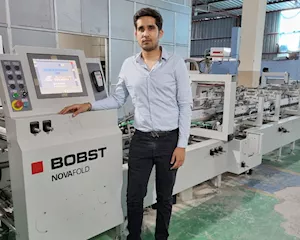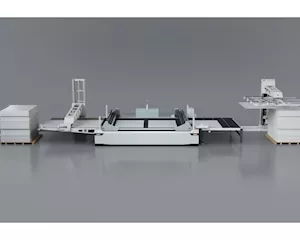Living in these times of the Coronavirus - The Noel D'Cunha Sunday Column
The Covid-19 virus is something most Indians have not
seen but everyone is affected by it. 95% of the firms
have been shutdown and after two quarters, one out of
five firms may not re-open.
“The fact of the matter is that it is going to be
felt worldwide for a considerable period of time
because a lot of people will lose a lot of money,”
says Saket Kanoria, managing director at TCPL.
Sunday Column talks to Kanoria about how we should
hope for the best, but plan for the worst
05 Apr 2020 | By Noel D'Cunha
What has been the impact on your business thus far?
Mumbai has been in lockdown for about two weeks now, and India since Wednesday (25 March 2020). So, all the operations are currently shut.
However, under the Essential Services Act, some of our customers have received permission to restart their operations in a small way. So we are also trying to see if we can support their manufacturing activities.
Effectively, everything is shutdown.
Quarantines, travel restrictions, and social-distancing measures drive a sharp fall in consumer and business spending – it will impact revenues and operations?
Right now, that is the least of our concerns right now. The bigger concern is: how long is this going to go on? And how people are going to survive? To my mind, this is the bigger issue.
So, it’s not going to be business as normal, once the crisis is over?
No, absolutely not. We may be heading into a deep recession, the economy as a whole as there will be job losses and companies will have lost a lot of money due to the burden of overheads. So to bounce back from lower demand going forward is going to be a challenge.
So, how long will it be before we start returning to the normal way of doing business, that is, maybe where we were in February 2020?
It’s a difficult question. We have not been in such a situation before. Right now there’s no cure for Covid-19, and a vaccine is months away.
Now that you have assessed that it’s not going to be business-as-normal, what is your post-Covid-19 strategy going to be for TCPL?
Going forward, we will have to conserve resources. We will have to have two strategies in place – short-term and long-term.
Initially, we will have to make the statutory payments, ensure that the livelihoods of our employees are looked after and service customers as far as possible in an effective manner. This will be a short-term strategy to overcome the crisis.
In the long-run, once we are back in full scale operations, we have to obviously recoup what we have lost, but also see that we are more conservative in our future ambition.
Do you think the choices we make now could change our lives for years to come? Short-term measures will become fixtures for life, for example: work from home, school-going online.
You work from home is a reality but you cannot run a factory from home. All businesses whose core is manufacturing, the operation has to be done from the site. Supporting services like accounts and marketing can be done from home. A manufacturing business cannot earn revenues working from home.
How are you going to manage, with plants across the country, at least when coming off the crisis?
We have a well-organised infrastructure for some of our teams who can operate from home. We are using the Internet and technology to speak to each other and do whatever we can in terms of accounting, marketing support and such matters.
At the manufacturing sites, we have the usual preventive measures like temperature sensors are in place, masks are made available, keeping a distance from each other, sanitisation, and in general upkeep of hygiene. Most of the communication is happening using the Internet and technology, as I have already informed you.
And your customers?
There's an open channel on the phone or email. Right now only the emergency requirements are being allowed to be manufactured, which we are trying to manage, with correct measures in place.
Do you invest in health care - and is there a robust system in place?
We do provide insurance to all our employees. We have life insurance we have medical insurance, so we have fairly comprehensive insurance packages. But beyond that, we don't run any hospitals or something like that if that's what you're picturing.
One of the steps going forward may be cutting costs, in these drastic times...
Yes, as I mentioned earlier, initially, we may have to be conservative in our outlook.
It will really depend on how much we suffer because in three week’s time if we are back on our feet and the whole economy is back on its feet as if nothing has happened then it’s another matter. But if it’s a prolonged crisis, and if there’s a genuine demand recession, then obviously one may not be able to operate the way we used to operate in the past. That’s when the focus will strongly shift towards cutting costs.
Now what those cost-cutting measures are going to be, is difficult to say right now.
Fortunately for us, we are producing FMCG products packaging. These are day-to-day essentials for most people. I am hopeful, and I expect the crisis to not last for long, maybe a couple of months after which the economy should start recovering.
You are an optimist as far as the Indian economy is concerned, but the IMF has cautioned of a global recession, and other rating agencies have lowered India’s falling growth trajectory further. As they say, we were sliding down the hill, we may be falling off the cliff. Hence, being optimistic about demand recovery may be a real problem?
Yes, I am aware. In the western world, there has been a huge shutdown, and there will be a huge recession too. Of course, there are areas where India’s industries, like textile, which will be impacted because of the lack of exports.
I spoke about cost-cutting measures in one of the previous questions. For many industries, reducing staff may be one of these cost cutting measures. And if the factories which manufacture textiles are shut, there will be mass unemployment. The ancillary businesses which hinge on the textile market will also be impacted.
I am optimistic about India’s domestic economy revival, but if there is a demand recession in some areas of the market, and those industries are impacted, it will still be a big concern.
See this is a kind of crisis, has never been witnessed by the modern world. The fact of the matter is that it is going to be felt worldwide for a considerable period of time because a lot of people will lose a lot of money.
Given the situation, the president of America has proposed putting money in the hands of the American – a USD 2-trillion economic package. What would you suggest to the Indian government?
On the Covid-19 front, the Government of India has taken some strong measures in containing the spread, but the testing rate leaves much to be desired. They are now putting up more testing facilities, which is a good thing.
On the economic front, it has taken some measures to take care of the poor. On the business side, I am expecting some concessions for companies and organisations which hire people particularly if they are inactive for an extended period of time.
The government should look at a whole range of tax proposals to improve the spending power of the people, and their long terms prospects. The tax rates in India right now are very high, that is, the GST and plethora of personal tax. Though the corporate taxes were reduced last year, the government should also look at other rules such as reduction of tax on dividends, tax on buyback, long term capital gains, disinvestments, because it’s very important for the capital markets to get a big boost. Besides we must make business truly easy to do if we want to bounce back from this serious event and attract investment both domestic and foreign.
Your advice to the print community in India?
I think we should hope for the best, but plan for the worst. We will have to lower our expectations of growth but continue to be optimistic and work diligently.














 See All
See All